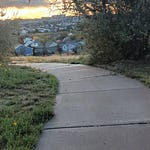Main Idea
Israel suffers defeat at Ai because of hidden sin, teaching that God’s people cannot expect victory while tolerating disobedience in their midst.
Key Verse
“The Israelites were unfaithful in regard to the devoted things; Achan son of Karmi… took some of them. So the LORD’s anger burned against Israel.” (Joshua 7:1)
Commentary
Joshua 7 describes Israel’s shocking setback immediately after their triumph at Jericho. Instead of moving from victory to victory, they are routed at Ai, a smaller city with fewer defenders. The defeat leaves the people’s hearts “melting in fear” (v. 5), echoing how their enemies had felt only chapters before. Something has gone terribly wrong.
The chapter reveals the cause: Achan of the tribe of Judah took some of the devoted things from Jericho—items that had been placed under the ban (herem) for destruction or consecration to the Lord (v. 1). Though only one man sinned, the text emphasizes that “the Israelites were unfaithful.” God views His people as a covenant community; the disobedience of one affects the whole. This principle is repeated throughout Scripture (see 1 Corinthians 5:6).
Joshua’s distress is raw. He falls before the ark, questioning why God allowed defeat (vv. 6–9). God responds bluntly: “Israel has sinned” (v. 11). The issue is not God’s power but Israel’s unfaithfulness. Until the sin is addressed, He will not go with them into battle. Victory requires holiness.
God directs Joshua to consecrate the people and identify the guilty party. Through a solemn process of tribe, clan, and family, Achan is singled out (vv. 16–18). Confronted, he confesses that he coveted a beautiful Babylonian robe, silver, and gold, and hid them in his tent (vv. 20–21). His confession highlights the destructive pattern of sin: seeing, coveting, taking, and hiding—similar to Eve’s sin in Genesis 3.
Achan and all he possessed are destroyed in the Valley of Achor (meaning “trouble”), purging the camp of sin. Only then is God’s anger turned away, and Israel is restored to covenant fellowship. The sobering message is clear: sin cannot remain hidden, and God’s holiness demands accountability.
Life Application
Joshua 7 teaches us that sin is never merely private. Achan likely thought his actions affected no one else, but his hidden disobedience weakened the whole community. Likewise, unconfessed sin in our lives harms not only us but also those around us. Families, churches, and communities bear the ripple effects of compromise.
The pattern of Achan’s sin is instructive. He saw, coveted, took, and hid. This echoes James 1:14–15, which describes how desire leads to sin, and sin leads to death. Temptation often begins with the eyes, grows in the heart, and leads to secret acts. The antidote is honesty before God, confession, and bringing sin into the light before it grows destructive.
Joshua’s prayer reminds us that defeat and setbacks should drive us to seek God, not merely blame circumstances. When things go wrong, it is right to fall before God and ask Him to search our hearts. Sometimes He reveals hidden sin that needs confession and cleansing. God’s purpose in discipline is not destruction but restoration.
Finally, the story of Achan warns us to take God’s holiness seriously. The severity of judgment may shock us, but it underscores how destructive sin is and how seriously God guards His covenant. For Christians, the good news is that Christ bore the judgment our sins deserve. At the cross, He became our Valley of Achor, taking our trouble upon Himself so that we might receive forgiveness and restoration.
What Can I Do?
Examine your heart this week for any “hidden sins”—attitudes, actions, or compromises you have tried to keep secret. Confess them to God honestly and, if needed, to a trusted believer for accountability.
Practice integrity by choosing one area where you are tempted to cut corners or hide wrong and commit to walking in honesty and transparency before God and others.
Ask Yourself
What hidden sins might I be tolerating that weaken my fellowship with God and others?
How does Achan’s story challenge my view of how my choices affect those around me?
What temptations do I need to cut off at the “seeing and coveting” stage before they grow into destructive actions?
How does God’s holiness and discipline reveal His love for me and His desire for my restoration?
In what ways does Christ’s sacrifice give me hope when I see the seriousness of sin in my own life?
Guided Prayer
Thanksgiving: Thank God for His mercy in revealing sin rather than leaving it hidden, and for Christ who bore your judgment to bring you forgiveness.
Intercession: Pray for your family, church, and community, asking God to protect them from the effects of hidden sin and to keep them walking in holiness.
Petition: Ask God to search your heart, reveal areas of compromise, and give you strength to walk in honesty and obedience.
Confession: Confess specific sins or compromises you have been tempted to hide, bringing them into the light of God’s grace.
Praise: Praise God for His holiness that does not ignore sin, His justice that deals with it, and His mercy that restores through Christ.







